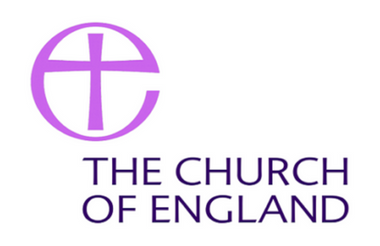The Charity Commission has told the Archbishops’ Council of the Church of England to accelerate its delivery of safeguarding improvements and close gaps in its approach to handling complaints.
It has set an expectation that the Archbishops’ Council should implement independent safeguarding structures, as endorsed by the Church’s General Synod in February, within 18 months – a year sooner than is currently planned.
The expectation forms part of a regulatory action plan issued to the Archbishops’ Council following a compliance case the commission opened last November following the Makin Review into abuse committed by John Smyth, which led to the resignation of Archbishop Justin Welby.
In its engagement, the commission assessed whether the charity’s trustees were taking sufficient steps to address the safeguarding concerns and implement recommended changes raised in a number of safeguarding reviews.
It closed its case this month without finding evidence of mismanagement or misconduct by the trustees of the Archbishops’ Council, and recognised some recent improvements to the Church of England’s safeguarding, but concluded that the charity must implement outstanding reforms “at a much faster pace”.
The commission found “insufficient urgency and pace” from the Archbishops’ Council in implementing responses to past safeguarding reviews, and said its current approach to doing so is “fragmented and overly complex”.
It said the charity’s current timescale of 2028 to pass the necessary legislation to implement independent safeguarding is too slow.
The commission found that the Church of England does not treat allegations of abuse from an adult not assessed to be “vulnerable” as a safeguarding allegation.
It said this contrasts with its guidance, which states that trustees must take reasonable steps to protect from harm all people who come into contact with their charity.
The commission therefore instructed Archbishops’ Council trustees to close the gap on how allegations made by a non-vulnerable adult should be handled in different circumstances.
Progress ‘must be made in bigger, bolder steps’
While some safeguarding reforms will require legislative change, the commission said trustees should make interim arrangements to address identified safeguarding risks until any legislative changes are in place.
It expects the Archbishops’ Council to identify any safeguarding risks that may require interim non-legislative measures to keep people safe and to put suitable measures in place.
Reflecting this approach, the Archbishops’ Council has told the commission it plans to establish an interim independent scrutiny body for church safeguarding ahead of legislation.
While the commission has closed its case, it is monitoring the Archbishops’ Council’s progress against the action plan and has pledged to assess any evidence it receives that raises new regulatory concerns.
Commission chief executive David Holdsworth said: “It’s time for the Archbishops’ Council and the Church of England to move from review to reform, and from debate to delivery.
“Everyone recognises that improving safeguarding is an ongoing journey, but in the Archbishops’ Council’s case, the progress on that journey must be made in bigger, bolder steps, informed by the experience of victims and survivors.
“The commission will monitor the charity’s progress against our regulatory action plan, and reserve all regulatory options for the future if sufficient progress is not made at pace.”
Charity ‘committed to working at pace’
The Archbishops’ Council said it welcomed the commission’s findings and was committed to acting on its recommendations “as swiftly as possible”.
A spokesperson said the charity was “immediately focused on building on the work undertaken over the past decade, which has included the introduction of independent safeguarding audits, comprehensive safeguarding training for all who work in the church whether paid or voluntary, and ensuring church bodies have safe and healthy cultures, as well as resourcing and scrutiny arrangements necessary to deliver high-quality safeguarding practices and outcomes”.
They said: “The Archbishops’ Council is committed to working at pace to enable the implementation of further safeguarding reforms, particularly in governance, with detailed proposals to be brought to the next General Synod to ensure sustainable and long-lasting best practice.
“The Archbishops’ Council recognises its responsibility to safeguard individuals who engage with its work, particularly in cases referred to the national safeguarding team under established codes of practice.”
Earlier this year, the Church of England voted to merge the Archbishops’ Council and one of its other charities, Church of England Central Services, as part of a governance review.











